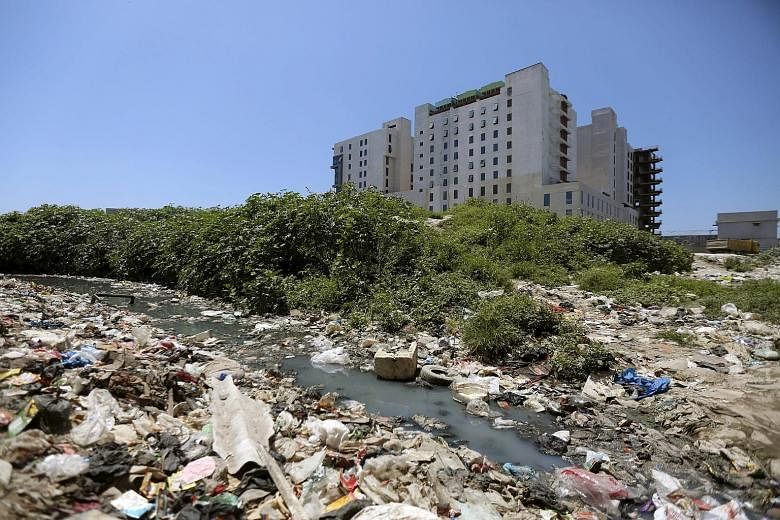NEW DELHI • For nearly two years, Parkway Pantai has delayed the opening of its 450-bed India hospital - the Singapore-based medical firm's bid to cash in on one of Asia's fastest-growing private healthcare markets - while it waited for the necessary permits.
Parkway - a unit of IHH Healthcare, the world's second-largest healthcare group by market value - now plans to use acquisitions to expand quickly in India.
Estimates put the private hospital market there at US$55 billion (S$78 billion) a year, but firms must obtain as many as 70 clearances from the federal and local authorities to launch a new facility.
"Greenfield is off the agenda," said Mr Ramesh Krishnan, the Singapore-based head of Parkway's Middle East and South Asia operations. "It's a market you don't want to wait eternally to tap, so we've decided to do it inorganically. It's just a question of a shorter runway."
In Mumbai, garbage festers around Gleneagles Khubchandani Hospital, originally slated to open in 2012. Mr Krishnan said the opening is now set for next year.
Expanding through acquisitions has increasingly become the tactic of choice for hospital operators seeking to grow quickly in India, where demand for private healthcare is booming thanks to an overburdened public healthcare system.
Data from Bank of America Merrill Lynch (BofA-ML) Global Research shows that India's private hospital market is set to grow 16 per cent a year and reach US$120 billion by 2020.
Still, such growth will not address the severe shortage of hospital beds or lower medical costs - issues that Premier Narendra Modi's government has yet to resolve, despite election vows to upgrade the healthcare sector.
India has seven hospital beds per 10,000 people, while China has 38 and South-east Asia averages 10, the World Health Organisation said last year.
"Acquisitions are good for the industry, but can have worrying long-term implications for infrastructure development in the sector," said healthcare head Rana Mehta at consultants PwC India.
Growing through acquisitions is more lucrative for hospital firms than starting from scratch. The BofA-ML data shows they pay up to US$150,000 to set up a new bed in India - against US$60,000 to buy an existing bed.
Also, acquisitions in India remain cheaper than in many other countries. Buying a hospital bed costs US$1.5 million in Singapore and US$100,000 in South Africa, the data shows.
So far this year, IHH Healthcare has bought majority stakes in India's Global Hospitals and Continental Hospitals for about US$240 million. It already holds a 10.85 per cent stake in India's largest hospital chain, Apollo Hospitals.
"In India, strategic acquisitions help increase our speed to market and meet pent-up demand for quality private healthcare," IHH chief executive Tan See Leng said via e-mail.
REUTERS

